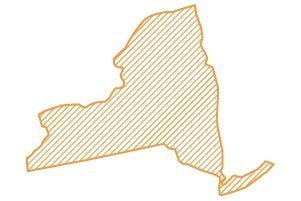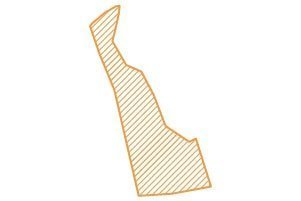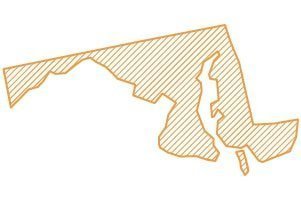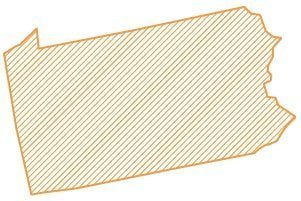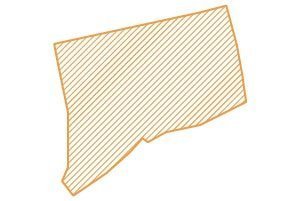Rutgers University offers the sole master’s in library science (MLIS) in the state of New Jersey. The program is offered through their School of Communication and Information and is accredited by the American Library Association (ALA). The state also provides various opportunities for students looking to pursue library media education through an M.Ed. at New Jersey City University, William Paterson University and a certificate at Seton Hall.
This article summarizes New Jersey’s library programs and how to apply to each program and university. Additionally, it mentions how to become a librarian in the state of New Jersey, the average salary paid to librarians, and the career opportunities. We also break down the largest cities in New Jersey and the career and library programs available there. If you would like to know more, keep reading.
Library Science Programs Currently Accepting New Jersey Applicants
ALA Accredited Library and Information Science (MLIS) Programs in New Jersey
The American Library Association (ALA) sets the standard for libraries, librarians, and library and information science in higher education. Any program that is accredited by ALA is respected by most institutions and organizations looking to hire a librarian or information specialist. New Jersey has one ALA-accredited program through the School of Communication and Information at Rutgers University. To learn more about this program and the university, keep reading.
Master of Information at Rutgers University
This degree teaches the organization, creation, preservation, management, retrieval, and use of information and its relationship with technology and the community. It is offered entirely online, or on campus. On-campus classes meet once a week to allow flexibility for students’ schedules while also providing a collaborative learning environment. Online classes also engage in collaborative work virtually. Students also have the choice of an area of study in archives and preservation, data science, interaction design and informatics, library and information science, school librarianship, and information technology and management. The degree with any area of study is 36 credit hours in length and is typically completed in two years.
How to apply
Before you apply, make sure you have all of your supporting documents ready. You will need official transcripts, two letters of recommendation, a personal statement, and a resume. Then create an online profile and fill out an online application. There will also be an application fee. No GRE is required.
Ph.D. in Library Science Programs in New Jersey
A Ph.D. in Library and Information Science gives graduates the credibility to publish their professional work and to gain more research opportunities. It provides an expert skill set for working as an administrator in library and information environments. Doctorates in Information Science allow individuals to create real change in our communities and to move with current technology and the rapid growth of information.
Ph.D. in Communication, Information, and Media at Rutgers University
This program offers areas of concentration in communication, library and information science, and media studies. Each student will complete their coursework in their preferred area of study and then complete their dissertation. Doctoral students can work with other students across multiple disciplines and with the faculty. Courses are designed to encourage this collaboration.
How to apply
First, create an online account and fill out the online application and pay the application fee. Additionally, send in a personal statement, a writing sample, a curriculum vitae, official transcripts, and three letters of recommendation.
Transcripts should be sent to the following address: Office of Graduate and Professional Admissions, Rutgers, The State University of New Jersey, Proctor Hall, Suite 308, 65 Davidson Road, Piscataway, NJ 08854 U.S.A.
How to Become a Librarian in New Jersey
In New Jersey, both part-time and full-time library workers in the public library systems must have a Professional Librarian Certificate. To receive a Professional Librarian Certificate, you must have a master’s degree from an ALA-accredited program. The only alternative is for foreign applicants; they must have the foreign equivalent of an MLIS degree accredited by their own standards. Then you must fill out an application for certification and submit your official transcript from the master’s program that ALA accredits.
Bachelor Programs in Information Science in New Jersey
In New Jersey, there is one bachelor’s degree in information. It is offered by Rutgers University, which is New Jersey State University. The American Library Association accredits Rutgers’ School of Information and provides a master’s and doctorate in information science. This undergraduate program will give students the skills to help technology or information-rich companies and organizations design and manage technology and use it to benefit the organization and the community.
Bachelor’s in Information Technology and Informatics at Rutgers University
Informatics is the study of information technology and how it can help society, communities, and individuals. Therefore a bachelor’s degree in information technology and informatics will inform students of the various types of current information technology and how to use them and give them the skills to evaluate information technology and use it to better their communities. The degree includes a choice in an area of study in either cyber security and information assurance; data management and analytics; web design and development; and video game production. The program starts after undergraduate students complete 15 required credits, and the rest of the program is 39 credit hours. Students can also add a senior thesis or experimental learning course for applying their knowledge to real-world challenges. The School of Information at Rutgers also offers a fast-track option that combines this undergraduate degree with their Master of Information degree. By doing this, both degrees can be completed in five years.
How to Apply
To apply, fill out the online application for the undergraduate program, then pay the application fee. After being accepted and meeting the school of information’s admission requirements, apply for the information and informatics program.
What Else Can You Do with a Library Science Degree in New Jersey?
There is a multitude of large corporations that are looking for information specialists in New Jersey. One of the most notable companies is Cognizant. They provide professional services to other companies by helping them develop technology that changes their company and keeps them up to date with the fast pace in data management and technology. Additionally, they are ranked 195 on the Fortune 500. They hire data analysts, project managers, information technology consultants, business risk analysts, and much more.
Some other good corporations are Panasonic, Wipro Limited, and Sanofi US. New Jersey also has a strong healthcare system and is the headquarters for many pharmaceutical companies like Novartis. Additionally, if you are looking for a historian job or a career in archives, check out the New Jersey State Archives.
Newark Library Degree Programs and Career Opportunities
Rutgers University, the State University of New Jersey, is in Newark. They also have campuses in New Brunswick and Camden. This university offers a bachelor’s, master’s, and doctoral program in library and information. Additionally, their master’s program is accredited by the American Library Association, setting the standard for higher education in library science. Rutgers University also provides job opportunities for librarians and information specialists.
The Newark Public Library System has nine library locations in the city and offers services for all ages and various ethnic and social backgrounds, and they pride themselves on being inclusive and diverse. Every day they offer classes, programs, and host events for the community. Some of their notable events and services are Teen Artist Club, various different book clubs, children’s storytime, LEGO time, bilingual storytime, and computer classes.
Jersey City Library Degree Programs and Career Opportunities
Jersey City has nearly a hundred different colleges and universities. Some of these colleges are two-year community colleges, and others offer undergraduate, graduate, and doctorate degrees. One of the most notable universities is New Jersey City University. This means plenty of academic library positions.
The Jersey City Free Public Library has ten locations and library departments in teen services, children’s services, information services, adult services, and lending services. They also help run the local museum and provide online services. If you are interested in working with the Free Library check out these employment opportunities.
Salary Opportunities in New Jersey for Librarians
New Jersey has 4,320 library positions and pays a mean salary of $73,320 annually. Many of these positions are in the larger cities, but they have some opportunities in the smaller towns and rural areas. Librarians have opportunities as academic librarians, archivists, school librarians, public librarians, research librarians, and special librarians.
Additional Links
To learn more about library and information science and the national standards for it, visit https://www.ala.org/.
For library career opportunities and more information about libraries in New Jersey visit https://www.njla.org/.

